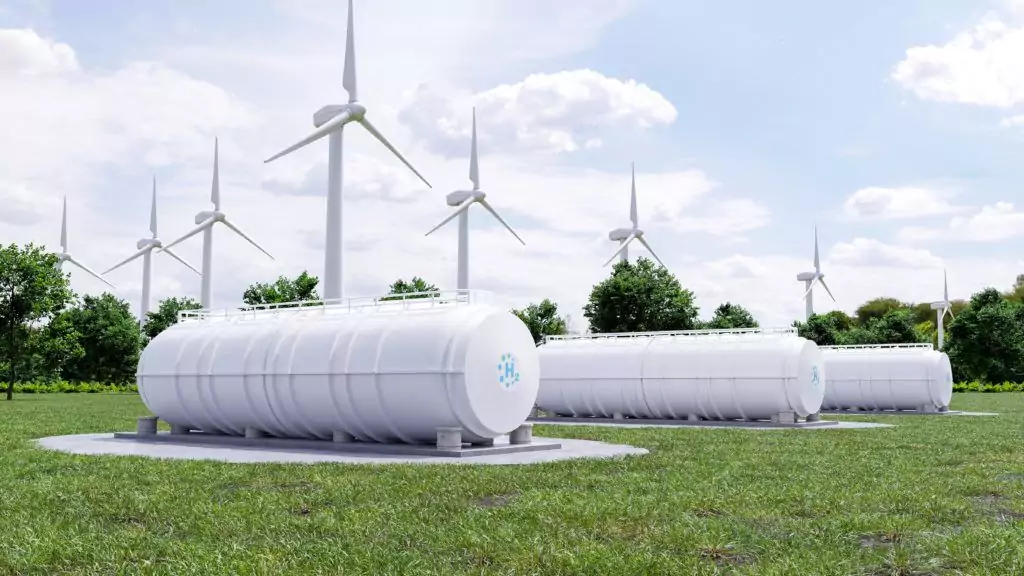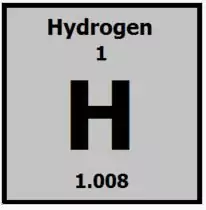In recent years, the global energy landscape has witnessed a paradigm shift towards sustainable and cleaner alternatives. Among these, hydrogen has emerged as a promising contender, gaining momentum for its potential to revolutionize the way we power our world. North America, with its ambitious goals for decarbonization and energy transition, is at the forefront of embracing hydrogen as a key player in the future energy mix. This article explores the burgeoning hydrogen infrastructure in North America and delves into how engineering companies play a pivotal role in its development through engineering, design, and procurement.

The Hydrogen Revolution in North America
North America’s push towards a hydrogen-based economy is fueled by a commitment to reducing carbon emissions and achieving energy independence. Governments, industries, and investors are recognizing the potential of hydrogen as a versatile, clean energy carrier that can be harnessed for various applications, from transportation to industrial processes. The region is witnessing a surge in hydrogen production projects, with a focus on both green and blue hydrogen.
Green hydrogen, produced through electrolysis powered by renewable energy sources, aligns with many sustainability goals across North America. On the other hand, blue hydrogen, produced from natural gas with carbon capture and storage (CCS), provides an interim solution for a smoother transition.
Engineering Companies: Catalysts for Hydrogen Infrastructure Development
As the demand for hydrogen infrastructure rises, engineering companies are stepping into a crucial role, serving as catalysts for the development of a robust and efficient network. Their expertise in engineering, design, and procurement is indispensable in ensuring the success of hydrogen projects across North America.
Engineering Expertise
Engineering companies bring a wealth of knowledge to the table when it comes to designing and implementing hydrogen infrastructure. From the conceptualization of hydrogen production facilities to the development of storage and transportation systems, engineers play a vital role in ensuring the efficiency and safety of the entire hydrogen value chain. Their expertise extends to optimizing processes, mitigating risks, and adhering to regulatory standards.

Innovative Design Solutions
Designing a hydrogen infrastructure that is both efficient and sustainable requires innovative thinking. Engineering companies leverage their creativity and technical know-how to design cutting-edge solutions for electrolysis plants, hydrogen storage facilities, and distribution networks. They consider factors such as scalability, safety, and integration with existing energy systems to create infrastructure that meets the demands of a rapidly evolving energy landscape.
Procurement Management
Procuring the necessary equipment, materials, and technologies for hydrogen projects is a complex task that demands a deep understanding of the market and industry dynamics. Engineering companies excel in procurement management, ensuring that projects stay on schedule and within budget. Their ability to negotiate contracts, source quality components, and manage supply chains is instrumental in the successful execution of hydrogen infrastructure projects.
Hydrogen Infrastructure
To comprehend the multifaceted role of engineering companies in hydrogen infrastructure, it is essential to examine the key components involved in the development of a comprehensive hydrogen ecosystem.
Hydrogen Production Facilities
Engineering companies are instrumental in designing and constructing hydrogen production plants, whether they rely on electrolysis for green hydrogen or utilize steam methane reforming with CCS for blue hydrogen. The optimization of these facilities for cost-effectiveness, energy efficiency, and environmental sustainability is paramount to the success of the overall hydrogen infrastructure.
Storage Solutions
Hydrogen’s low energy density makes storage a critical aspect of the infrastructure. Engineers are tasked with designing safe and efficient storage solutions, which may include underground caverns, salt domes, or advanced materials for compressed or liquid hydrogen storage. These solutions must balance capacity, accessibility, and safety considerations.
Transportation Networks
The transportation of hydrogen from production sites to end-users necessitates a sophisticated network. Engineering companies contribute by designing pipelines, trucks, and other transportation modes tailored to the unique characteristics of hydrogen. They address challenges such as hydrogen embrittlement and develop solutions to optimize the logistics of hydrogen distribution.
End-User Applications
Hydrogen finds applications in various sectors, including transportation, industry, and power generation. Engineering companies collaborate with end-users to integrate hydrogen technologies into their existing infrastructure or design new systems that harness the potential of hydrogen for clean and sustainable energy solutions.

Challenges and Solutions
While the prospects of hydrogen infrastructure in North America are promising, several challenges need to be addressed to ensure a smooth transition. Engineering companies are at the forefront of developing solutions to overcome these challenges:
Cost Competitiveness
One of the primary challenges is the cost competitiveness of hydrogen compared to traditional energy sources. Engineering companies are actively engaged in research and development to drive down costs through technological advancements, process optimization, and the deployment of innovative solutions.
Scaling Up Production
Scaling up hydrogen production to meet the increasing demand requires strategic planning and execution. Engineering firms are developing modular and scalable designs for production facilities, allowing for the seamless expansion of capacity to align with market needs.
Infrastructure Integration
Integrating hydrogen infrastructure with existing energy systems poses a logistical challenge. Engineering companies are working on solutions to seamlessly integrate hydrogen into the existing energy infrastructure, ensuring compatibility and maximizing efficiency.
Regulatory Framework
The regulatory landscape plays a crucial role in the development of hydrogen infrastructure. Engineering companies collaborate with policymakers and industry stakeholders to establish clear and supportive regulatory frameworks that encourage investment and innovation in the hydrogen sector.
Conclusion
The rise of hydrogen infrastructure in North America represents a transformative shift towards a cleaner, more sustainable energy future. Engineering companies, with their expertise in design, engineering, and procurement, are pivotal in realizing the full potential of hydrogen as a key player in the energy transition. As governments, industries, and investors continue to invest in hydrogen projects, the collaboration between engineering firms and other stakeholders will be essential to overcome challenges, drive innovation, and establish a robust hydrogen ecosystem that powers tomorrow’s world.
Planning a Hydrogen facility and need some help?
Vista Projects is an integrated engineeringThe process of integrated engineering involves multiple engineering disciplines working in conjunction with other project disciplines to e... services firm able to assist with your hydrogen facilities and related projects. With offices in Calgary, Alberta, and Houston, Texas, Muscat, Oman, we help clients with customized system integration and engineering consulting across all core disciplines. Contact us today!









